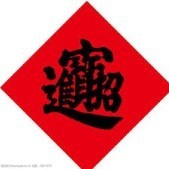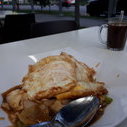Leaderboard
Popular Content
Showing content with the highest reputation on 09/15/21 in all areas
-
4 points
-
See lah, complain about vaccination some more lah, now delay opening already lah3 points
-
2 points
-
2 points
-
2 points
-
https://asia.nikkei.com/Spotlight/Asia-Insight/Indonesia-and-Philippines-face-persistent-anti-vax-hurdle?utm_campaign=GL_asia_daily&utm_medium=email&utm_source=NA_newsletter&utm_content=article_link&del_type=1&pub_date=20210914190000&seq_num=17&si=44594 Indonesia and Philippines face persistent anti-vax hurdle Asian hesitancy weighs as inoculation drives make progress AKANE OKUTSU, CLIFF VENZON and ERWIDA MAULIA, Nikkei staff writersSeptember 14, 2021 06:00 JST TOKYO/MANILA/JAKARTA -- The number of people in Asia getting vaccinated against COVID-19 has been rising. But further progress in battling the pandemic could be slowed by the continuing appearance of social media hoaxes and disinformation that make it harder to combat hesitancy. Some of the uglier postings have been in Indonesia, which says it has found and had taken down 2,000 vaccine-related hoaxes on social media platforms. One posting in July showed five coffins in a mosque, with a deliberately-wrong caption saying they contained residents of one house who just got vaccinated. In an earlier hoax, an Indonesian TV report quoting a scientist was manipulated so captions had him saying "our people will be killed by Chinese vaccines" and that jabs "make the virus more savage" -- which was completely different from what he was saying. Before Facebook took it down, the post received 11,000 "likes" and was shared 182,000 times. Last month in the Philippines, the Health Department debunked a video -- which went viral on Facebook -- by a "Doc Ron" who asserted that Pfizer's COVID-19 vaccine contains HIV particles. That too was taken down. Japan too has been hit by misleading social media posts. In the first seven months of 2021, as many as 110,000 Twitter posts that were retweeted at least once suggested that getting vaccinated leads to infertility, Nikkei's research found. A health worker tends to a coronavirus disease (COVID-19) patient in the chapel of Quezon City General Hospital turned into a COVID-19 ward amid rising infections, in Quezon City, Metro Manila on Aug. 20. © Reuters In many Asian countries, governments and experts are trying to find ways to communicate more effectively with the public and -- where there are anti-vax efforts -- to knock them down. There have been some improvements, but it's proving difficult to crush vaccine hesitancy. This is part of the reason there's a long way to go to get vaccination levels high enough to resume most normal activities and travel. A 31-year-old mother of one in Japan's Kanagawa Prefecture, south of Tokyo, is an example of the hesitancy that the government has not been able to eradicate. She and her husband are aware that the health ministry and other public institutions insist there is no evidence that getting vaccinated is harmful for pregnant women. Still, the woman -- who is not pregnant -- refuses to get COVID-19 shots. "Because we want a second child, my husband and I decided we would not get vaccinated," she said. In her view, the vaccines were "just developed, and I am worried that something might happen in a few years, even if there was no [worrying side-effect] for now." Many younger people in Japan are yet to take the vaccines. Based on its research in Tokyo and surrounding areas in July, a government expert committee found that only 45% of people in their 20s and 30s were either already vaccinated or wanted to be, compared with 60% for those in their 40s and 50s. According to the committee, it is ideal to vaccinate 75% of the younger group, and 80% for the older one. Japan, which just rolled out its vaccination program this year, had fully vaccinated half of its population. It has done well with seniors, fully vaccinating about 88%. Government leaders and experts have been desperately trying to convince the still reluctant, especially among Japan's young. "There are false rumors that the COVID-19 vaccine makes people infertile, but various institutions around the world are saying that [rumor] is totally not true," Taro Kono, a minister who's in charge of the vaccination program, told a major youth fashion event, Tokyo Girls Collection, on Sept. 4. "I hope you will take [the vaccines] with no such fear," he said. His tweet about TGC was liked 20,000 times. All parts of the world have varying degrees of vaccine hesitancy, and some have found that the percentage of a nation's people vaccinated starts to plateau after reaching 50% to 70%. As of early September, about 40% of people in the U.S. haven't had any jabs, according to Our World in Data. About 30% still have not been vaccinated in the UK and Israel. In the Philippines, where 15.4% were fully vaccinated as of Sept. 12, a survey by Pulse Asia in June showed that 43% of respondents said they wanted to be vaccinated, 36% said they didn't, and the rest were undecided or had been vaccinated. This was an improvement from a February poll, which showed only 16% willing to be vaccinated while 61% were not. Sometimes, minds do change. "Before, I didn't want to be vaccinated, because of news that some people died after being vaccinated," Kathlyn Marcos, a 31-year-old Manila cashier, told Nikkei Asia after receiving her first shot of Sinovac. She was the last to be vaccinated in her family, which eventually convinced her to get it. A medical worker injects a dose of COVID-19 vaccine in Indonesia on Sept. 6. A survey found 60% of respondents either "less willing" or "very unwilling" to get a jab. © Getty Images In Indonesia, 15.4% of the population was fully vaccinated by Sept. 12. Factors slowing progress include some delays in delivery and distribution of the vaccines, but there's also coolness to vaccinations. A survey released by Jakarta-based pollster Indikator Politik Indonesia on Aug. 25 found 60% of respondents were either "less willing" or "very unwilling" to get a jab, half of whom cited worry about unknown side-effects. Disinformation about vaccines is not new, according to Shinichi Yamaguchi, an associate professor at International University of Japan who researches social media and fake news. Vaccination involves technical knowledge, causing some people to feel anxious because of their lack of understanding. And drivers of fake news being shared are anger or anxiety, according to Yamaguchi. "Anyone can be fooled, regardless of age or gender," he told Nikkei Asia. Countering fake news is a challenge for the government, especially when political confidence is low. Amid Japan's recent surge of COVD-19 new cases, support for Prime Minister Yoshihide Suga's government dropped to the 30% range in July for the first time since its inauguration in September 2020. (Suga later announced he will not seek reelection in ruling Liberal Democratic Party's presidential election on Sept. 29.) Lack of trust in the government creates a breeding ground for conspiracy theories and fake news, said Yamaguchi, adding "Unless there's trust in the government, the vaccination rate will not become high." According to research published in the medical journal Lancet in 2020, Japan in 2018 was among the countries with the lowest vaccine confidence in the world even before the pandemic. Another survey by Imperial College London as of August also shows Japan is lagging behind the U.K. and the U.S. in building strong trust in COVID-19 vaccines. Japan has had some bitter experiences with vaccines and drugs. One major setback was when the government lost when defending against lawsuits that made side-effect claims for measles, mumps and rubella (MMR) vaccines. As a result, Japan stopped requiring MMR vaccines in 1993 and made such vaccinations non-mandatory in 1994. Since 1994, attitudes of the health ministry toward vaccines "have always been passive," said Akihiko Saitoh, a professor of pediatric medicine at Niigata University. Vaccination is now an individual choice, and "the power of the government recommendation is not as [strong] as in the US," he said. Also, the Japanese government has been sued by more than 100 recipients of human papillomavirus (HPV) vaccines against cervical cancer, which are widely used globally. The class-action case, filed in 2016, remains in court. Women in face masks walk in the famous Shibuya crossing in Tokyo. Many young people in Japan are yet to get vaccinated against COVID-19 . (Photo by Ken Kobayashi) Kensuke Yoshimura, president of an educational project called Cov-Navi that provides information to the public on COVID-19 vaccines, said Japan's vaccine policies "had repeated failures, especially for communication," and that the HPV vaccines scare indicated "the ultimate example of failure." Indonesia, the country with the largest Muslim population, historically has seen some resistance to medicines on the basis they were not certified as halal, or acceptable for Muslims. In August 2018, the Indonesian Ulema Council (MUI) issued a fatwa (edict) saying that the MMR vaccine was "forbidden" because of the use of pork or derivatives in its production, but that the use of the vaccine itself was "permissible" because of Islamic law's leniency in emergency situations. For COVID-19, the government involved MUI from the beginning in its vaccination drive. In January, the council declared Sinovac, which was the first vaccine used and accounts for the bulk of doses administered in Indonesia so far, as halal. Indikator Politik said that in its poll, 4% of respondents said they either didn't believe or were unsure if government-provided vaccines were halal. Indonesia's Communications Ministry, in addition to finding and getting social media platforms to take down hoaxes, has been fact checking against problematic contents and publishing counternarratives regularly on its website. In May, it launched a national digital literacy program to educate the public not to easily trust information spreading on the internet. In the Philippines, unfounded allegations that a dengue vaccine caused the death of children grabbed headlines a few years ago, fueling skepticism on vaccines for a time. Another issue in the Philippines for COVID-19 is higher trust in Western-made vaccines than Chinese ones which dominate the country's supply. The bias forced the government in May to stop announcing in advance the brands that will be administered in vaccination centers. Philippine President Rodrigo Duterte holds a vial of Sinovac Biotech's CoronaVac in February. © Reuters Confidence in COVID-19 vaccines improved after a government's information campaign on vaccine effectiveness regardless of the brand. Doctors received Sinovac jabs on national TV, while President Rodrigo Duterte's inoculation with a jab of China-made Sinopharm vaccine was also publicized. (Duterte has threatened to jail people who didn't get vaccinated, but it hasn't happened.) For Yoshimura of the Cov-Navi project in Japan, the key to battling COVID-19 is getting people accurate, easy-to-understand information. Yoshimura, who is also a professor at Chiba University Hospital, launched the project with other experts to educate the medical workers and Japan's general public, communicating information backed by peer-reviewed academic reports and public institutions. He added that efforts must be made to educate youths in their teens, or even younger and their parents. Vaccine hesitancy is not the sole obstacle to accelerate inoculation drive. There is still more to be done about making vaccines available for those who are wanting to get one. In Japan, vaccination at some universities and companies was put on hold due to lack of supply. A new vaccination site set up for young people under 39 years old at the end of August in Tokyo's Shibuya district was overcrowded on its first day, before the site started to accept online bookings. Vaccines are believed to be effective for preventing severe symptoms that require extra care in hospitals. "No matter how much the number of beds increases and capacity expands, the main plug must be closed," said Cov-Navi's Yoshimura. Combined with social distancing and border control, "vaccination would be the most effective" measure for fighting COVID-19, he said.2 points
-
vax lai vax qu but still every day increasing cases. wahahahahahha2 points
-
2 points
-
australian senate even more sakti, ask what is a thermomix in zheng hu's tender.2 points
-
Big bro wong, mai gong jiaowei rah!!!2 points
-
why change job when i have the best paying clean conscience job in sgp????? 9 am-6 pm, i m here 6.30pm i go here lim soup and play until next day 8am is jin song.2 points
-
i really shld diam diam my big mouth. now cannot even 80% correct estimate the vaccine effectiveness liao zheng hu lurkers must have leeport my statistical inference to moh so now moh implement mitigation measures.2 points
-
Now no report unlinked cases liao.... Really is bare minimum data for us to see. So it like playing game of chance who where when tio covid instead of early prevention.2 points
-
2 points
-
NEW CASES: 837 Local community cases: 755 Dormitory cases: 77 Imported cases:52 points
-
i guesstimate grab's quarterly interest payment shld be ard usd500m based on full yr adjusted ebita of usd1bln loss. from how i read the financials quoted by ShT, i guesstimate interest expense most likely increased by usd100m this quarter due to the convertible redeemable preference share and whether the interest increase is 1-off, i need to know how the hybrid is structured and the amount issued. convertible redeemable preference share can be parked under equities or liabilities or combination of both and depending on how it is structured, u can even add in a interest payment delay/conversion clause or mechanism into it. so even thot there is an increase in interest payment, there maybe no corresponding increase in liabilities due to it being classified as equity and i believe grab has most likely parked the convertibles under equities. i must admit that grab's accountant did some very creative accounting to make everything look good but there is something in there that tells me of a rat.2 points
-
soounds like the KGK that spends his father money on cheekons and eat cheap food... wahahaha....1 point
-
Q2 loss US$815... revenue US$180... wtf... they are burning 4 times of their revenue... still got people want to buy their ipo ah?1 point
-
SINGAPORE - Apple was fined $1,000 for holding a social workplace event at its Orchard Road store on June 18. "Staff had gathered at the event to celebrate an employee's final day at the establishment," the Singapore Tourism Board (STB) told The Straits Times on Wednesday (Sept 15). The Straits Times understands that more than 50 people were involved in the gathering. Under the Covid-19 (Temporary Measures) (Control Order) Regulations 2020, enterprises permitted to operate must not physically hold social events involving their employees. STB also said it has stepped up enforcement checks at tourism businesses and precincts, including in Orchard Road, at each phase of Singapore's reopening. These include both stand-alone stores - such as the Apple store- and shopping malls. "We will continue to conduct regular enforcement checks and will not hesitate to take firm enforcement action against businesses or members of public who flout safe management measures," STB said. Under the Covid-19 (Temporary Measures) Act passed in Parliament on April 7 last year, first-time offenders who do not comply with safe management measures will face a fine of up to $10,000 or a jail term of up to six months, or both. Repeat offenders may be fined up to $20,000 or jailed for up to twelve months, or both. https://www.straitstimes.com/singapore/health/apple-fined-1000-for-hosting-social-gathering-at-orchard-store-in-june1 point
-
1 point
-
1 point
-
if u read grab press release, did u see any equities????? so limpeh me is rite on how grab categorize its convertibles. btw, limpeh me dont have accounting degree. wahahahahahaha1 point
-
guys if grab toh, grab drivers and delivery earn what. oh wait.....1 point
-
1 point
-
$1000 might as well dont fine1 point
-
1 point
-
1 point
-
1 point
-
In a pandemic like this its nice to receive presents, this are mooncakes from Seiko that I received today. What a surprise and very sweet of them.1 point
-
1 point
-
1 point
-
Don't really agree with everything the teacher said. Basic wildlife survival knowledge is never put anything into your mouth without an edibility test, which will take too long to do. In the army, we mostly carried Poy Sian Mark II inhalers which we used to relieve insect bites and dizzy spells. Peeing in front of you to clear 鬼打墙 carries some risks, it will be wiser to shout mantras or chants loudly. 临兵斗者皆阵列前行 (note the last two characters, this is the origin version called 六甲秘祝, not the Japanese knock-off that was made famous by 马小玲) was introduced as a chant to drive back evil spirits in mountains. It's a little overwhelming and might piss off things you don't want to mess with, use with caution.1 point
-
1 point
-
i buy rog 5 more value for money.1 point
-
just enough to buy a used iphone1 point
-
Desserts and sweet treats have been cancelled at Manchester United since Cristiano Ronaldo's return to the club. The Portuguese star made an instant impact on his second coming at Old Trafford, scoring twice in Saturday's 4-1 win over Newcastle United. And the man who is absolutely meticulous when it comes to keeping himself in top condition is apparently already having an effect on habits off the field as well. United goalkeeper Lee Grant has revealed not one United player went up for dessert after dinner on Friday night - and all because of Ronaldo's influence.   He told talkSPORT: 'To give you one instance of the impact he is having on the group right. This was Friday night in the hotel. 'So, as you guys will be aware, you finish your dinner and usually on a Friday night you've got some cheat stuff out. 'You've got some apple crumble and custard or you've got a bit of brownie and cream or whatnot. 'I tell you now, not one player touched the apple crumble and custard, not one player went up for that brownie because everybody was sat down. 'One of the lads said to me, "What has Cristiano got on his plate?" 'So we were having a little goosey gander at what he has got and obviously it is the cleanest, most healthy plate you can imagine. 'And it just cracked me up how not one single player dared get up and have that junk food that was laid out.' Asked to elaborate on what was actually on the 36-year-old's plate, Grant added: 'I'll tell you one of his plates - he had several. One of them was quinoa, avocado and a couple of boiled eggs. 'Listen, this guy is in incredible shape. He's actually got the second best body behind me now at the club - and that's saying something, so fair play to him!' Ronaldo returned to United in a £19.8m deal last month after deciding to leave Juventus. He wasted little time in making his mark on the Premier League once again, scoring United's first two goals against Newcastle at a delirious Old Trafford. His longevity at the very highest level of the game is down to a strict diet and fitness regimes. In fact, Ronaldo typically eats little and often - six meals a day, spaced out at 3-4 hour intervals - to meet the high nutritional demands of being a top footballer and support the fast metabolism athletes have. Ronaldo's diet also allows him to have explosive muscles and a very low fat mass. He has a personal nutritionist who has been following him since his Real Madrid days. He eats whole grains, fresh fruit and lean proteins contained in fish such as swordfish, sea bass, sea bream and cod. They are always fresh and never frozen. There is always a lot of salad on Ronaldo's plate and for breakfast he will eat cheese, ham, low-fat yogurt and fruit and avocado toast. He considers chicken one of the magical foods: rich in protein and low in fat. Patrice Evra, his team-mate at Manchester United, said of him: 'I recommend anyone to say no if Cristiano invites you to his house, because that boy is a machine and he never stops training. 'I went there and I was really tired after training, but on the table there was a salad and chicken breast and only water, no drinks.' Ronaldo is focused and attentive to every nuance of his life away from the pitch. In his diet, all carbonated drinks have been abolished and he avoids eating red meats and frozen foods. Ronaldo's fastidious attention to nutrition is a far cry from the dietary habits of some of United's past greats. Legendary former captain Roy Keane recently admitted he once chowed down on a doner kebab just three hours before a United match. The Irishman revealed: 'I played a cup game before Crystal Palace at home and three hours before the game I had a kebab. A doner kebab from the chipper. Three hours before the game. 'When you're younger you get away with it, but obviously you pay for it later on. You think you're getting away with it, having a bit of a laugh about it and being a jack the lad. 'In fairness though I did live by myself and I didn't have any food in the house.' RONALDO'S DIET, WORKOUTS, REST AND PHYSIQUE Diet His typical daily meals: Breakfast: Cheese and ham, low-fat yoghurt Brunch: Chicken and salad Lunch: Tuna, olives, egg and tomato Snack: Fresh fruit, avocado on toast Supper: Fresh swordfish and salad Dinner: Steak and calamari Workouts Ronaldo supplements squad training sessions with a personal workout plan. His five weekly trips to the gym include 25-30 minutes of cardio, high-intensity sprinting and targeted weights to increase muscle strength. In total, he works out for three to four hours a day. Rest The superstar naps five times a day. 'Proper sleep is really important for getting the most out of training,' he says. 'Sleep helps muscles recover which is really important.' Physique A test found he had the body of an athlete 14 years his junior, with 7 per cent body fat — (the average footballer's is 11). He has 50 per cent muscle mass.1 point
-
Where? Can sic? i will up your points1 point
-
1 point
-
1 point
-
1 point
-
1 point
-
1 point
-
1 point
-
kor kor can also go to this park in ipoh.1 point
-
i m just a lao tiko planning to retire as a sakti bkk Towkay like ur good friend here. kor kor also planning to invest in 5 storeys of sin for retirement ma???? confirm wont burn sgd1.9bln one.1 point
-
i thought they always said they no need singaporeans business can survive? they also say its singaporeans fault that JB is so expensive right?1 point
-
1 point
This leaderboard is set to Singapore/GMT+08:00









